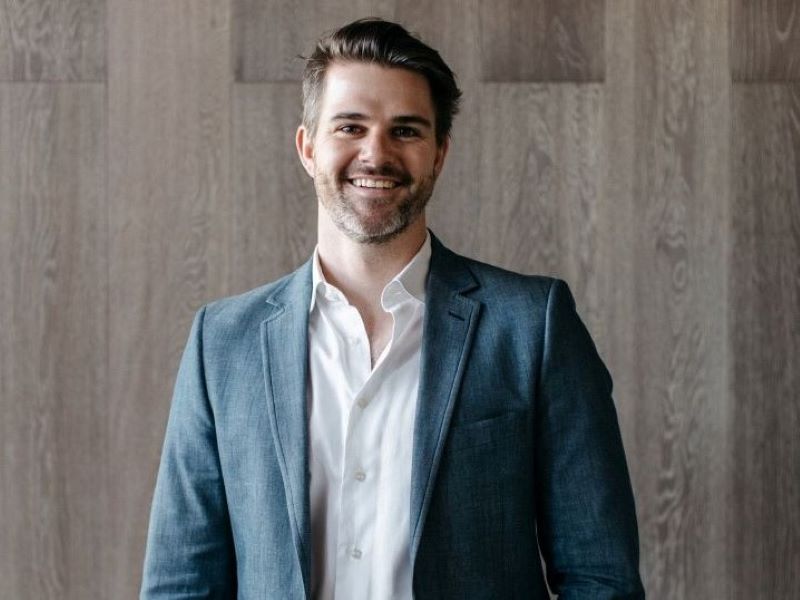An economic downturn has curtailed the “stupid” investment environment of the last two years that saw Australian founders raising too much money with unrealistic valuations, according to the co-founder of Skalata ventures.
But he insists there’s never been a better time to build a company and urged entrepreneurs to focus on the “boring” ventures more insulated from a consumer crunch.
When interest rates hit record lows in 2020, angel investors hit the venture capital market with “FOMO”, or fear of missing out, on backing the next big company, according to Skalata Ventures cofounder and chief executive Rohan Workman.

He told a Melbourne Startup Bootcamp panel on Wednesday that the less experienced investors helped fuel a “stupid” time in Australian capital raising.
“Honestly, you’d get these founders coming up to you saying ‘I’m turning over $4,000 a month in revenue. I’d like a $10 million valuation. I’m going to build it to a $100 million company in the next three months’. It was just stupid.”
Cashed up doctors, bankers and lawyers wanted somewhere to put their money but lacked the experience to know if a budding startup was the real deal, he said.
“What you find is some founders might find a friend’s uncle who works at KPMG as a partner [to] put in money. [They] didn’t know that for a $10 million valuation it wasn’t actually that sensible, and it’s just an unrealistic expectation around what they think they can get for the next capital raise.”
Faced with tougher economic conditions and rising interest rates, many of these investors have now pulled back, he said, and seed investors are now much more “realistic”.
That’s a good thing, according to Mr Workman, because, despite less total capital available, companies can still build a business by taking advantage of lower input costs and pursue an “incremental” pathway to larger valuations.
Mr Workman said the current environment also means founders with “boring” B2B products like logistics become more appealing.
“The boring sectors are the best,” he said.
“If you’re working in a really boring industry, then we really, really want to talk to you because they’re often overlooked… I think if you’re doing [business to consumer] or anything consumer related, then you do need to be considering the macroeconomic conditions and the fact that people probably will be spending less over the next period of time, so growth rates will be lower.”
Ben Armstrong, founder of Archangel, said founders don’t need to chase the “hot areas” like generative AI either.
“Obviously, it appeals to the sort of thematic investor who’s trying to follow the next the next big thing, but who knows where the next big thing is going to come from? Certainly not VCs,” he said on the same panel.
“We rely on you guys to find the opportunities in the market from talking to real customers.”
Mr Armstrong, whose pre-seed and seed VC business is still making about one or two investments a month, says his company’s risk appetite has not changed a lot, but he agreed the market has fundamentally shifted from the “frothy” times of the last two years.
The rising interest rates which have seen investors pull back also mean VC firms are now competing with safer options like bank deposits again, he said, forcing a rethink of what a venture investment really is.
“They’ve now said, ‘well, instead of just following the momentum of the market, let’s look at the fundamentals, and let’s go back to what is a VC type opportunity’. That’s why I think you’ve had a pullback of some VCs who’ve deployed tens [or] hundreds of millions of dollars. Now we’ve got to be a bit more respectful of our [Limited Partners’] money,” he said.
The tightening capital environment has been a tailwind for Tractor Ventures, the revenue-based financing firm’s co-founder and chief executive Jodie Imam told the panel.
Tractor Ventures offers loans that can be paid back with a percentage of the recipient’s revenue.
“It’s an alternative to raising VC capital, which doesn’t suit everyone,” she said.
“[But] you can save on dilution as you build the business. So we are writing checks between $50,000 and 1.5 million.”
Ms Imam agrees B2B firms are well placed to take advantage of the current environment and haven’t felt the same pain as B2C firms “yet”.
“The way we’re looking at it is to think about what risks [our portfolio companies] might have in the next 12 to 24 months… it hasn’t hit them yet.”
The Tractor Ventures chief says there is still capital to be raised in Australia as well, provided founders have customers, revenue and a path to profitability.
“There is a lot of dry powder in this market, especially in Australia. We’re still protected from the what’s happening, to an extent, around the world. I think our VC funds are cashed up and a have to invest.”







